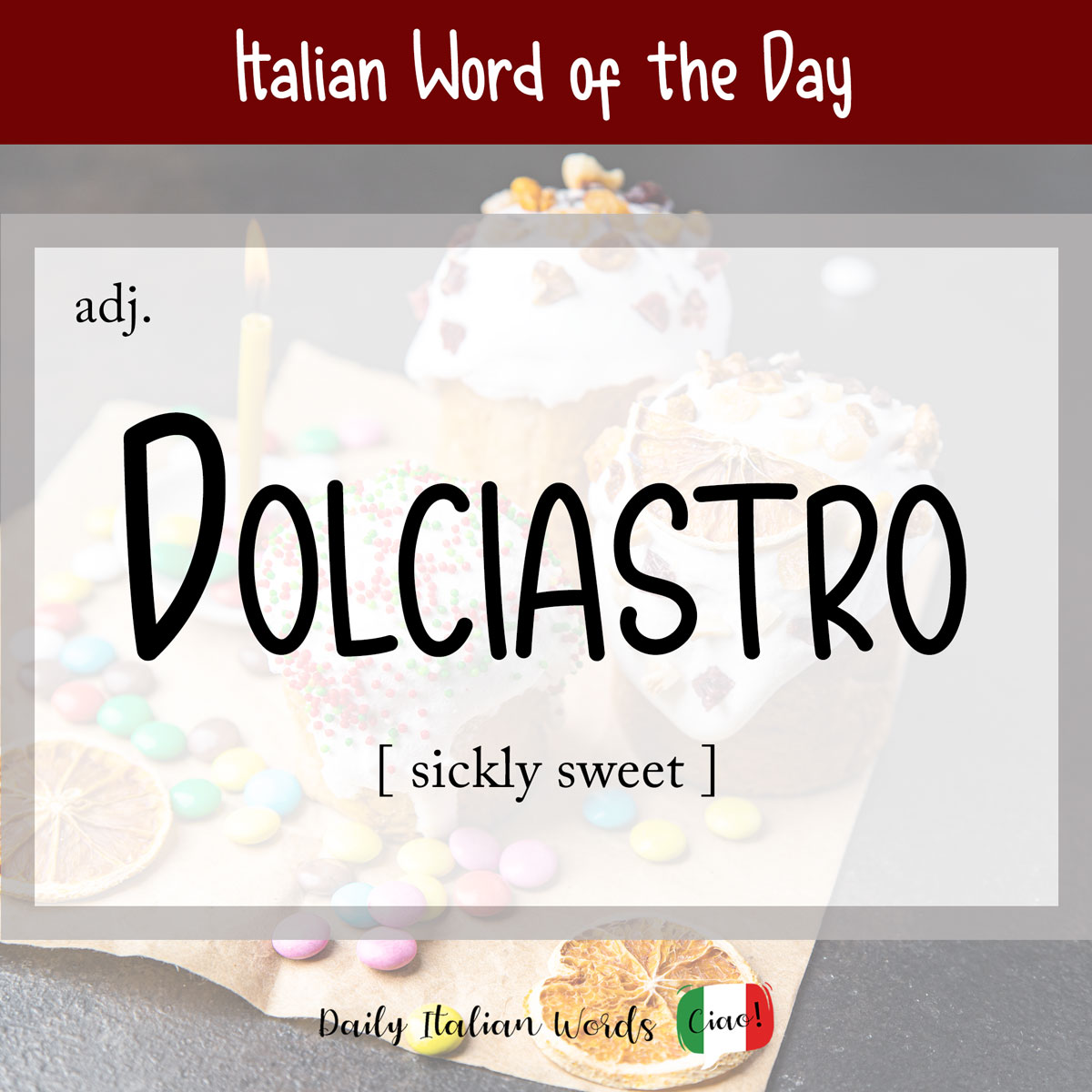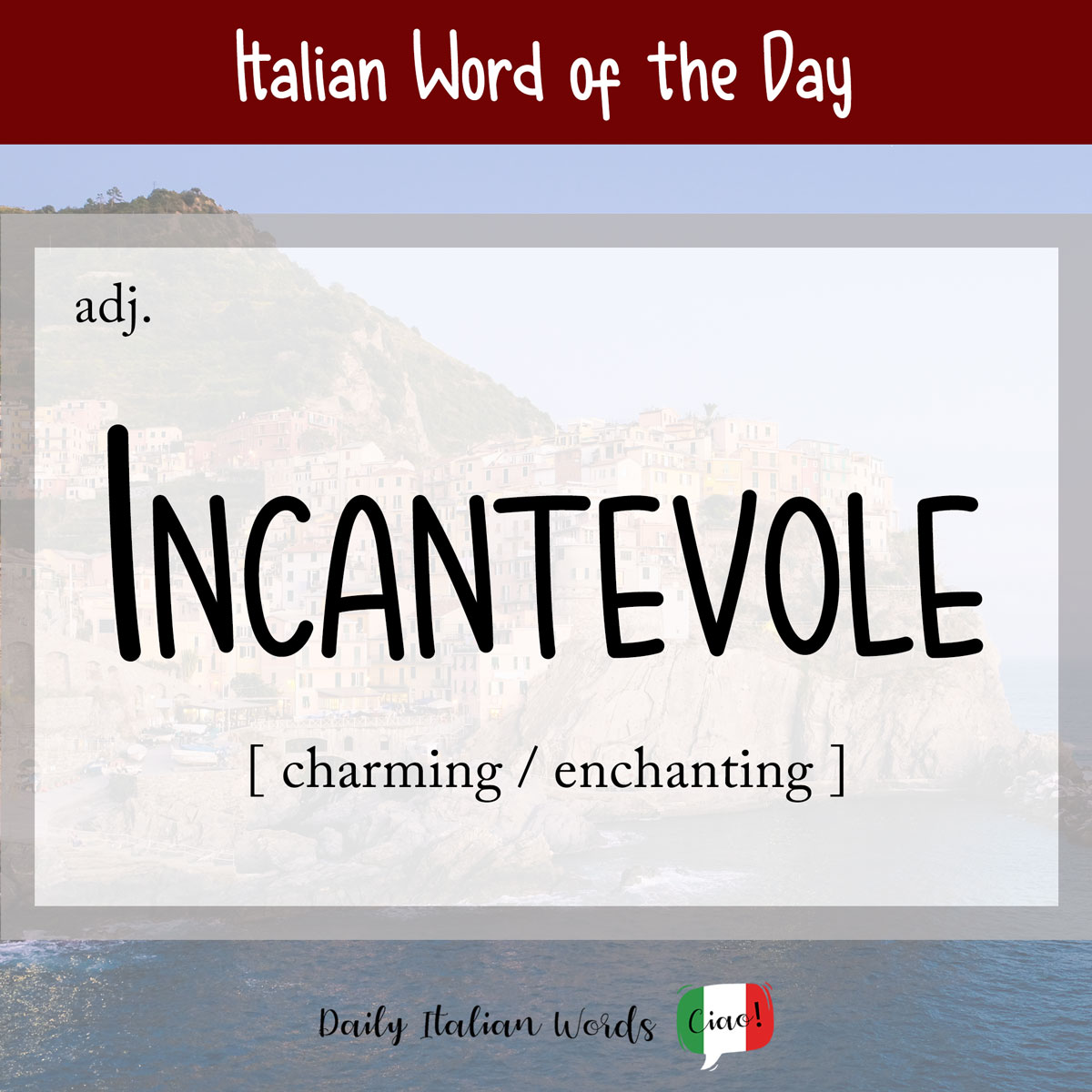Italian Word of the Day: Dolciastro (sickly sweet / cloying)
The adjective dolciastro, which derives from the more commonly known adjective dolce (sweet), refers to anything that is sweet in flavour, but not pleasant. Some possible translations include sickly sweet or cloying. Adjectives such as dolciastro always agree with the noun they describe, which means that they have to demonstrate whether they are masculine, feminine, …






